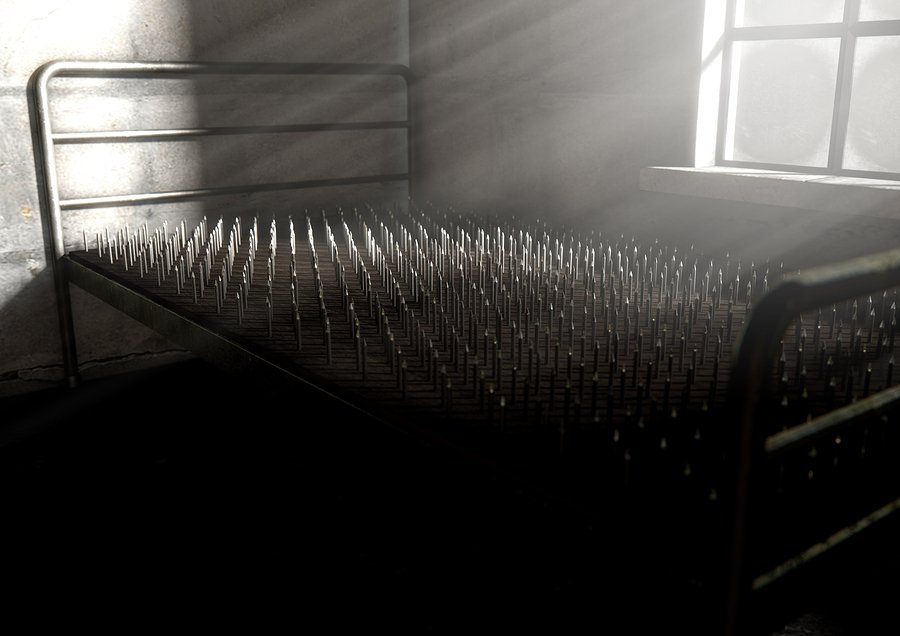Skip to content

By Rabbi Yeshaia Charles Familant
Procrustus, in Greek mythology, was the heartless and malicious son of Poseidon, the sea-god. Procrustus owned a fortress on Mount Korydallos midway between the cities of Eleusis and Athens. A blacksmith by profession, he whiled away his hours by enticing unsuspecting guests to stay the night and sleep upon his especially fashioned bed, the eponymous Procrustean bed.
This bed was hard and unyielding – a zero-tolerance bed. Since Procrustus determined this device to serve all who came within his domain, his unknowing guests would be made to conform to its length, rather than the other way around. While they were fast asleep, a state likely induced by a soporific potion, they were further restrained by irons.
Consequently, were any of his guests too short to fit the bed’s length, they would be stretched to conform; similarly, were any too tall (long) for the bed, their legs would be amputated so as not to extend beyond the bed’s length. It is clear from these dual measures that his guests could not long endure.
One may wonder why word had not reached outlying areas to ward off travelers from venturing near this fortress. One probable reason is that none of the guests of Procrustus had ever escaped to tell of their misfortune – or of that of others. Another likely reason is desperation: those who left Eleseus for Athens were, in fact, desperately escaping the Eleusinian mysteries which were shrouded in secrecy, but must have certainly involved child-sacrifice, based as they were upon the abduction of Persephone from her mother, Demeter, by the king of the underworld, Hades. To keep their children alive, one might surmise, parents escaped to where they hoped to find freedom from tyranny and death – the city of Athens.
The refugees, during their long trek by foot with their children and belongings, saw no alternative but to stop at this most accessible spot before reaching their destination. Since children’s beds were in another section of the fortress, families were, of necessity, separated; thus, children became isolated from their parents. One may only shudder at the eventual fate of these innocents.
Though the parallels between this mythical tale and the horrid present-day reality along our southern border are inescapable, one might still hope that this modern-day Procrustus might finally realize the utter inhumanity of his actions and change course. However, if he is found to be incorrigible, then some version of the Procrustean bed might eventually become his fate – in accordance with the law of karma.
Scroll To Top

